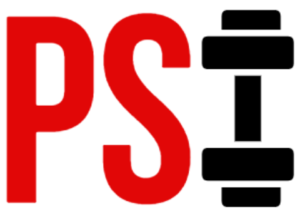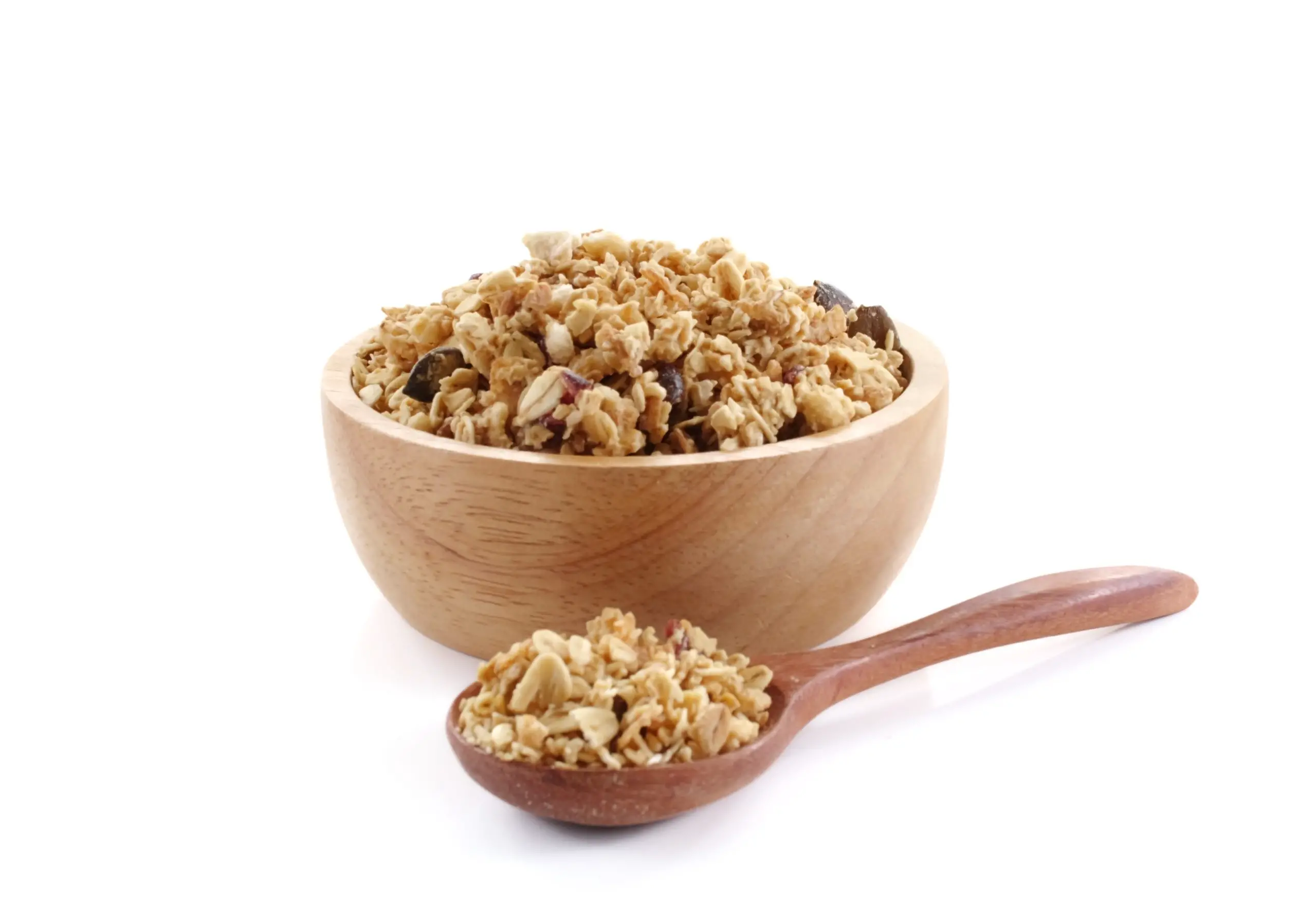Bodybuilding is all about controlling what you put into your body and when—so naturally, it’s important to choose the right fuel. But if you’re looking to build muscle, lose weight, or just rock a beaches-ready bulked body, is granola one of those necessary parts? You’ve come to the right place to find out.
I’m here today because I’m here to tell you that if you’re looking for something great to add to your diet plan as a bodybuilder, granola might be one of your best options! In this article, we’ll answer the questions: Is granola good for bodybuilding? Is granola good for building muscle? Is granola good for bulking? And is granola good for weight loss? We’ll also break down the macros—protein, carbs, and fat—as well as the calories in a typical serving of granola. Let’s dive in!
What Is Granola and What Does It Contain?
Granola is popular breakfast food, but is it good for bodybuilding? Well, first things first—what is granola anyway?
Granola is a combination of oats, nuts, dried fruits and typically some type of sweetener—often sugar, honey or maple syrup. It’s made by baking this combination until it’s crunchy and golden. When you break it down like that, it’s no wonder that granola can be good for bodybuilding.
Since it’s so customizable, granola can be a great way to get your macronutrients like protein, healthy fats and carbohydrates in one tasty bite. It can also be a rich source of other important nutrients such as iron, heart-healthy fats and dietary fiber. Plus, depending on the ingredients you opt for and the amount of sweetness added to your blend, the nutritional content of your granola can vary widely from being low in calories to being quite high in fat and sodium. The same goes for its macronutrient content—it depends on how much of the different ingredients you choose to include.
Macros and Calorie Content of Granola
When it comes to granola, the macros and calories do vary depending on what kind you buy. Take general store-bought granola as an example – it contains 21g total carbs, 3.5g fat, 2g protein, 2g fiber, and 130 calories per 30g serving.
Carbohydrates make up the most significant portion of granola’s macronutrient profile. Rolled oats and dried fruits are rich in complex carbohydrates, which provide a steady source of energy and contribute to the maintenance of healthy blood sugar levels. Granola also contains some simple carbohydrates from sweeteners like honey or maple syrup, which contribute to its sweet taste, but should be consumed in moderation to avoid excessive sugar intake.
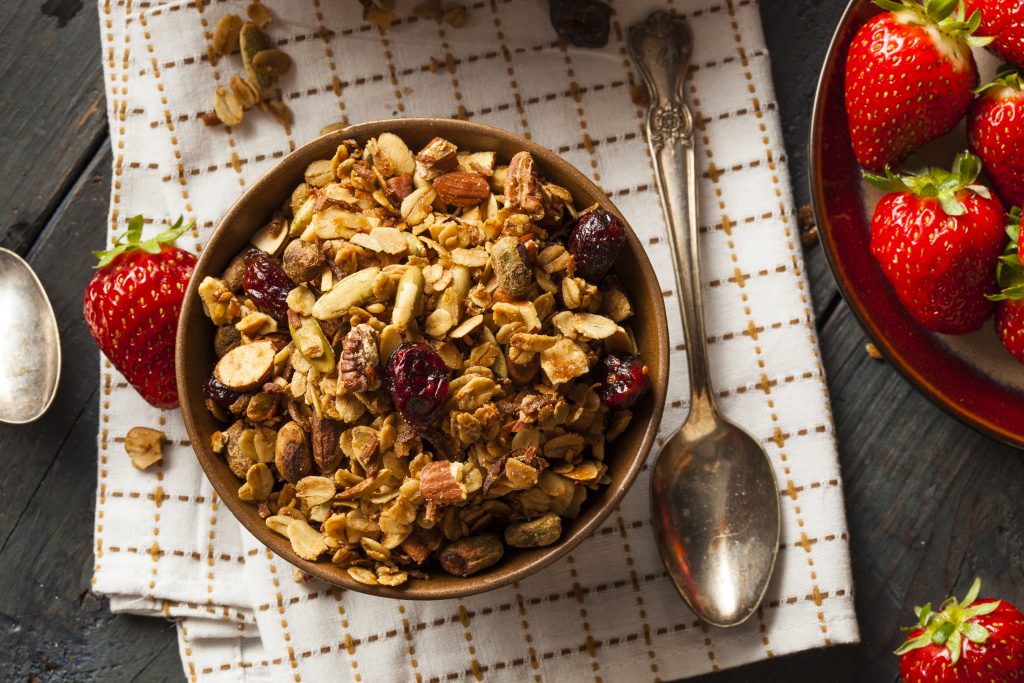
In terms of protein, granola offers a small amount, primarily from the oats it contains. Proteins are essential for muscle growth and repair, and they provide the body with amino acids. The amount of protein in granola isn’t enough for building muscle, but it will add a few grams to your total daily intake.
Finally, granola contains healthy fats, mainly from nuts and seeds, as well as any added oils. These healthy fats, such as monounsaturated and polyunsaturated fats, play a vital role in supporting heart health, reducing inflammation, and aiding in nutrient absorption.
A serving or 2 of granola after a training session, along with a protein shake, would make an awesome muscle building meal. Granola has all the carbs and fats you need and a scoop or 2 of whey would give you the added protein you need.
Here’s a nutrition facts label from a popular brand:
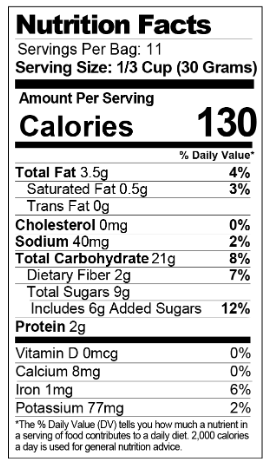
Is Granola Good for Building Muscle?
Granola can be a good food for building muscle, primarily due to its macronutrient composition and the nutrient-rich ingredients it contains. Here are a few reasons why granola can be beneficial for muscle growth:
Carbohydrates:
Granola is rich in complex carbohydrates from rolled oats and dried fruits. Carbohydrates are the body’s primary energy source, and having enough energy is crucial for fueling workouts and supporting muscle growth. Consuming carbohydrates post-workout can also aid in replenishing muscle glycogen stores, promoting quicker recovery.
Healthy fats:
Nuts and seeds in granola provide healthy fats, such as monounsaturated and polyunsaturated fats. These fats are important for hormone production, including testosterone, which plays a key role in muscle growth. Additionally, healthy fats can help reduce inflammation, aiding in muscle recovery.
Micronutrients:
Granola’s ingredients, like nuts, seeds, and dried fruits, are packed with essential vitamins and minerals that support muscle function, recovery, and overall health. These micronutrients include B vitamins, vitamin E, magnesium, iron, and zinc.
Plus, due to its high calorie content and relatively low price compared to other snacks, granola is an ideal go-to snack when you’re bulking up or trying to lose fat. So if you’re a bodybuilder looking for an affordable snack option that’s full of nutrition, then look no further than granola!
Is Granola Good for Bulking?
If you’re a bodybuilder on the lookout for a great snack to help you bulk up, then granola can definitely be your friend. Not only is it easy to carry around and ready-to-eat, but it also provides an energy punch that can help you power through your workouts.
A bowl of granola will provide more than enough calories and carbs for a good meal or pre-workout pick-me-up. And not only does it provide the calories, but it also contains essential micronutrients that you need to build muscle mass and support lean bulking efforts.
granola is packed with complex carbs — nutritional powerhouses like oats that break down slowly in your system so your muscles get exactly what they need over a sustained period of time. So if you’re looking for an easy-to-access food that helps fuel your bulking efforts, then granola could be just what you’re looking for.
Is Granola Good for Weight Loss?
Granola can be a great snack for weight loss. High-fiber foods like the oats and whole grains found in granola can help with weight loss by making you feel full for longer, thus encouraging calorie control. The fiber that’s found in granola can also help with controlling calorie intake and promoting weight loss, as well as providing you with essential vitamins and minerals too.
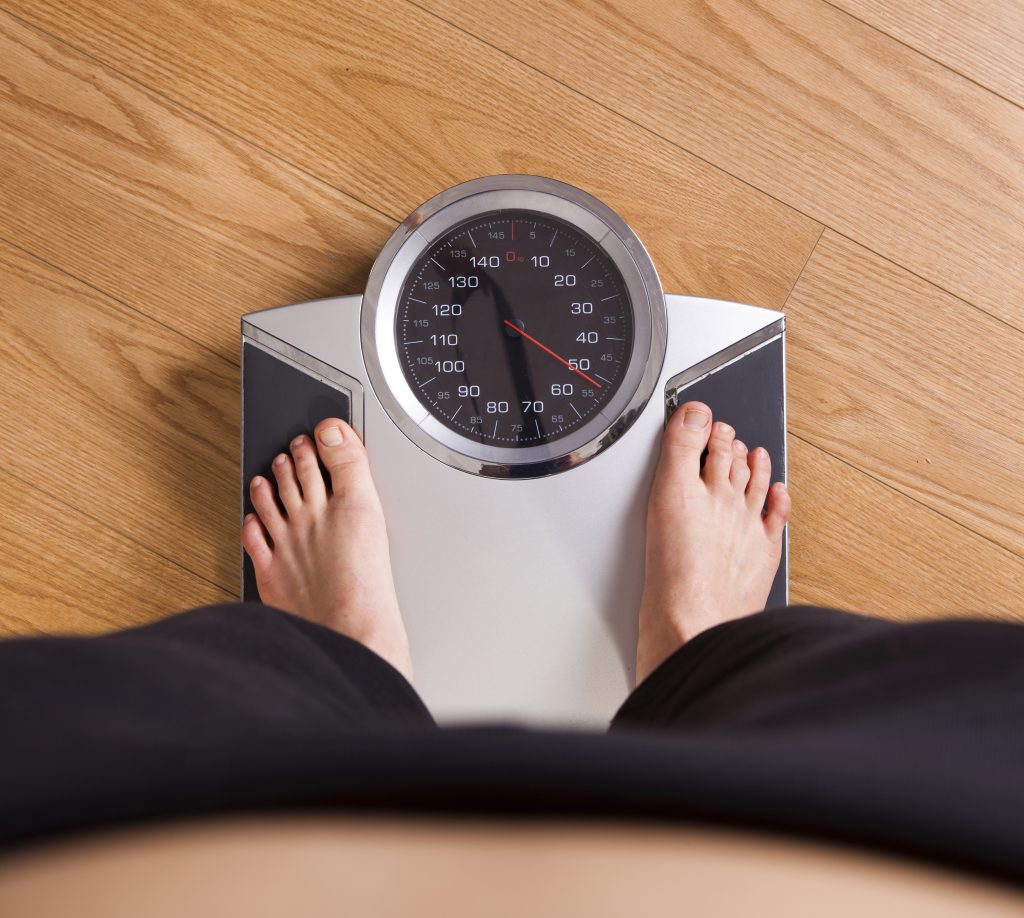
However, granola isn’t a miracle food — it can be high in calories, so it should still be eaten in moderation. If you want to curb your calorie intake while adding more nutrients to your diet, choose unsweetened or low-sugar varieties of granola. It’s also important to watch your portion sizes—the suggested serving size of granola is usually around 1/2 cup (45 to 60 grams).
In conclusion, when eaten in moderation, in the right portion sizes and with unsweetened or low-sugar varieties – granola can be a great snack for someone trying to lose weight.
Benefits of Including Granola in Your Bodybuilding Diet
Including granola in your bodybuilding diet can offer several benefits, particularly when it comes to meeting your macronutrient and micronutrient needs. Here are some advantages of incorporating granola into your bodybuilding meal plan:
Balanced macronutrients:
Granola is a source of complex carbohydrates, proteins, and healthy fats, all of which are essential for muscle growth, recovery, and energy production. The combination of these macronutrients can help support your training regimen and overall body composition goals.
Energy boost:
Rolled oats and dried fruits in granola provide complex carbohydrates, which supply a steady stream of energy during workouts and throughout the day. This energy sustenance can help improve workout performance and endurance.
Muscle recovery:
The protein content in granola, primarily from nuts and seeds, contributes to muscle repair and growth. Consuming protein after a workout can help facilitate muscle recovery and support muscle building efforts.
Supports overall health:
Granola’s nutrient-dense ingredients, like nuts, seeds, and dried fruits, are rich in vitamins, minerals, and antioxidants that promote overall health. A healthy body is more likely to perform optimally during workouts and recover more effectively.
Versatility and convenience:
Granola is a portable and versatile food option, making it easy to incorporate into your meal plan. You can enjoy it as a breakfast cereal, mixed with yogurt, or as a snack on-the-go.
To optimize the benefits of granola for bodybuilding, choose or make a granola with minimal added sugars and unhealthy fats. Consider adding a high-protein component, like Greek yogurt or a protein powder, to boost the protein content of your meal or snack. Always be mindful of portion sizes, as granola can be calorie-dense, and overconsumption may lead to excess caloric intake.
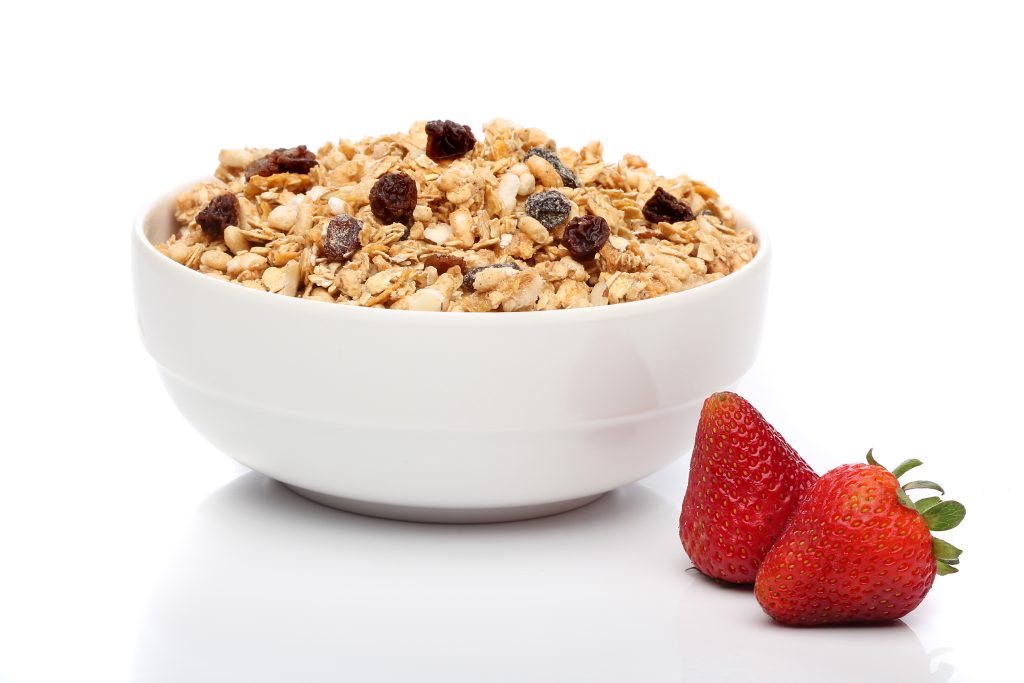
Some Nutrition-Based Tips for Building Muscle
When it comes to building muscle, there are many important factors. Here are some nutrition based tips for maximizing your muscle gain.
Consume sufficient protein:
Protein is the building block of muscle tissue, so it’s essential to consume enough protein daily to support muscle growth.
Aim for 1.2 to 2 grams of protein per kilogram of body weight, depending on your activity level and goals. Include high-quality protein sources, such as lean meats, fish, poultry, dairy, legumes, and plant-based protein powders.
Stay hydrated:
Drinking enough water is crucial for efficient nutrient transport, muscle function, and waste product removal. Aim for at least 8 cups (64 ounces) of water per day, and increase your intake during intense workouts or hot weather.
Eat balanced meals:
Include a mix of protein, complex carbohydrates, and healthy fats in your meals to provide your body with the nutrients needed for muscle growth.
Carbohydrates provide energy for workouts, while healthy fats support hormone production and overall health.
Focus on nutrient-dense whole foods:
Choose whole, unprocessed foods, such as fruits, vegetables, whole grains, lean proteins, and healthy fats, to supply your body with a wide range of essential vitamins, minerals, and antioxidants. Granola is a great “whole food” choice to add to your diet.
Time your nutrients strategically:
Consume protein and carbohydrates before and after your workout to fuel your muscles and aid in recovery. Eating a balanced meal or snack within 30 minutes to 2 hours after exercising can help maximize muscle protein synthesis. If you’re on the go, granola is an easy portable option.
Don’t forget about micronutrients:
Vitamins and minerals play a crucial role in muscle function, recovery, and overall health. Ensure you’re getting a variety of micronutrients from your diet, including B vitamins, vitamin D, calcium, iron, and magnesium.
Monitor your calorie intake: To build muscle, you need to consume more calories than you burn. Calculate your daily caloric needs based on your age, weight, activity level, and goals, and adjust your intake accordingly.
Incorporate healthy snacks:
Eating healthy snacks between meals can help you meet your daily caloric and nutrient needs for muscle growth. Opt for high-protein options, such as Greek yogurt, cottage cheese, nuts, or protein bars.
Consider supplementation if needed:
Supplements, such as protein powders, branched-chain amino acids (BCAAs), and creatine, can be helpful in meeting your nutrient needs and supporting muscle growth, especially if you have a busy lifestyle or struggle to consume enough nutrients through your diet.
Listen to your body:
Pay attention to your body’s hunger and fullness cues, and adjust your food intake based on your energy levels, workout intensity, and muscle recovery needs.
Conclusion
In conclusion, granola is a great choice for bodybuilding. It can support muscle growth, help with bulking, and help with weight loss – depending on your goals. It’s also a good source of protein, carbs, and fat, and is a great snack for those who need a quick energy boost. Unless you’re bulking, make sure to watch your portion sizes, as granola can be easy to overindulge in. Start small, figure out your macros, and enjoy granola as a delicious and nutritious snack to help you reach your bodybuilding goals.
Now, eat some granola and head to the gym. It’s time to go Pump Some Iron!
